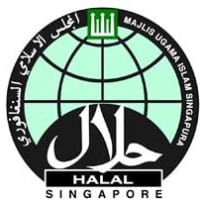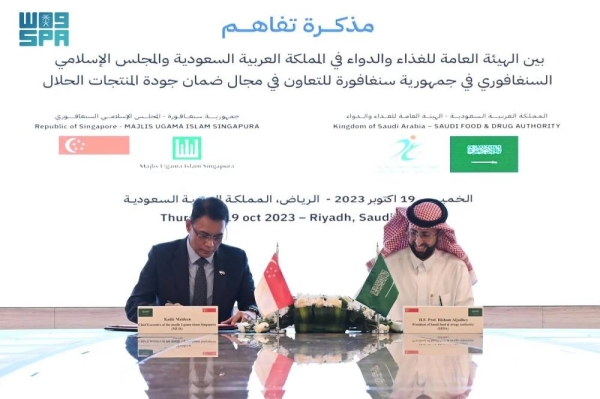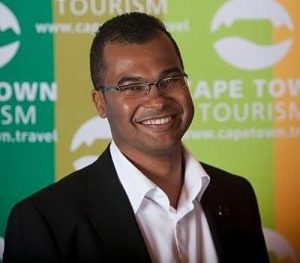By: Murray Hunter – Asia Sentinel
Documents point to rogue official in food documentation
 A top official of the department that ensures food consumed by Singapore’s Muslims complies with Islamic teachings has allegedly used his position to engineer the accreditation or de-listing of overseas certifying bodies he favors or dislikes.
A top official of the department that ensures food consumed by Singapore’s Muslims complies with Islamic teachings has allegedly used his position to engineer the accreditation or de-listing of overseas certifying bodies he favors or dislikes.
According to documents and recordings made available to Asia Sentinel, Munir Hussein, assistant director of the Halal Certification Strategic Unit of the Majlis Ugama Islam Singapura, (the Islamic Religious Council of Singapore), allegedly also abused his powers by divulging confidential commercial correspondence to third parties in attempting to pressure companies to employ preferred consultants and employees.
In doing so, Munir may have violated Singapore’s Prevention of Corruption and Personal Data Protection Acts. The Singapore Corrupt Practices Investigation Bureau is said to have begun a probe of the matter based on evidence made available to Asia Sentinel. The Malaysian Prime Minister’s Department is also said to have begun an internal audit after Asia Sentinel reported on the situation on November 8, 2019.
The nature and extent of the corruption have both international business and trade implications through sloppy, opaque Halal certification accreditation procedures and alleged favoritism towards particular certifying bodies in Australia, Europe, and the US.
MUIS is a statutory board under the Singapore Ministry of Culture, Community and Youth, under the direct control of Masagos Zulkifli, the minister in charge of Islamic affairs, who reports directly to the president of Singapore, Halimah Yaacob. The council oversees Islamic affairs including halal certification to ensure the religious purity of Singapore Muslims’ food products.
Halal certification includes verifying that local establishments and manufacturers are eligible to handle approved products as well as appointing overseas certifying bodies to certify goods to be consumed within Singapore including beef, chicken, lamb, and goat meats, smallgoods, processed foods, beverages, dairy products, and industrial flavors such as lemon or cola flavoring in beverages.
Recognized MUIS halal certifiers can generate hundreds of thousands of dollars monthly for recognized overseas exporters and importers, who pay a royalty on units produced.
Munir allegedly engineered the delisting of certifying bodies in Australia in unexplained circumstances including the Islamic Coordinating Council of Victoria (ICCV), which had been certifying customer shipments to Singapore, worth around US$200,000 per month in revenue. The directors of ICCV have been attempting to reverse the delisting by MUIS over the last couple of years without success.
In a series of emails between Munir and ICCV officers in seeking re-accreditation with MUIS, several abnormalities stand out. Among these abnormalities within the exchange of correspondence was the copying of the correspondence to a competitor, the insistence that ICCV employs consultants who were employees of a competitor, and an excessive interest in the employment of two Malaysian workers.
In an accompanying statutory declaration obtained by Asia Sentinel, Aslam Kazi, a director of ICCV, explained in detail the complaints made by email to Munir First, was the matter of leaking confidential correspondence to third parties. Confidentiality of information is a major issue, particularly client information. In this case, Munir copied the correspondence to two people, Mohamed Adil Rahman (previously reported about by Asia Sentinel) an employee of ICCV’s competitor, the Supreme Islamic Council of Halal Meat in Australia, Inc. or Sichma, and Mughtar Saiden, the managing director of the company, who died in 2018.
According to a recording made available to Asia Sentinel, Munir met with ICCV directors Ekram Ozyurek and Esad Alagic in MUIS offices in July 2018 to insist that the company employ Mohamed Adil Rahman and Mughter Sadien as consultants as a condition of accreditation. That, in effect, gave a competitor access to all ICCV procedural and customer records, and dependent upon a competitor for accreditation.
At the meeting, Munir also demanded that ICCV employ two Malaysian workers, Sheikh Ridzuan Shafie and Mohd Ridza Helmi, a nephew of Sirajuddin Suhaimee, former head of the Halal Hub, of the Department of Islamic Development Malaysia, JAKIM.
Ironically, a few weeks before ICCV was delisted by MUIS, Mohamed Adil Rahman (as previously reported by Asia Sentinel), told a colleague of his intentions to delist ICCV from Singapore’s MUIS and Malaysia’s JAKIM. This fact was found in a Statutory Declaration obtained by Asia Sentinel.
The employment of the two fell through when it was found that both workers were not eligible for Australian visas, as they did not meet professional requirements. Much of the correspondence between Munir and ICCV concerned this matter. In formal correspondence, Munir later denied the allegation in writing that their employment was a condition of re-accreditation. As of today, ICCV has still not been reinstated by MUIS.
Other complainants have alleged that Munir leaked confidential correspondence to third parties. In doing this, Munir may have hoped that a local Singapore business would take on his recommended consultant. In a statutory declaration a businesswoman who asked to remain anonymous as her company still requires MUIS halal certification allege that a third party got a copy of highly confidential correspondence she had sent only to Munir Hussein, resulting in harassment by that third party, who was a consultant within the industry. Highly confidential contents of the email were forwarded to this party. This resulted in the other party threatening her to the point that she wanted to close her business. Details of what transpired between her private dealings with her consultants were revealed to the third party too. The woman told Asia Sentinel that Munir also harassed her supplier to the point that the supplier began to rethink the business relationship that has existed for many years. Munir even instructed her to inform him if her consultant communicates with her at any time, thus breaching consultant-client confidentiality. Her relationship with her supplier completely broke down over the issue.
In another statutory declaration by Abdul Munim Al Chaman, chairman of the Halal Quality Council (HQC), at The Hague in the Netherlands in 2017, Abdul complained that during a surprise visit to his office, Munir issued a veiled threat that he stop taking on former customers of the rival certifying body the Halal Food Council of Europe (HFCE). Although Munir asked him for a list of his clients he refused. Ten months later, MUIS terminated HQC as an accredited certifying body.
Nor was HQC alone. MUIS also arbitrarily delisted Al Iman Islamic Society (AIS) as an accredited certifying body after Munir harassed both AIS and their client in Europe. Upon discovering that they were certifying a client formerly HFCE’s, Munir made harassing phone calls to their client in Germany and to the AIS office.
Australian Halal Food Services (AHFS) too, was terminated as an accredited certifying body for MUIS, without justification in 2015. A few weeks before the termination, Mohamed Adil Rahman was recorded saying he intended to remove AHFS from being recognized by MUIS, JAKIM, and MUI, costing the company its business. JAKIM in Malaysia and MUI in Indonesia followed suit, terminating AHFS accreditation in quick succession.
Asia Sentinel received statutory declarations and audio clips of Mohamed Adil Rahman in which Mohamed confirmed to other Sichma employees that he had agreed with Munir Hussein and Sirajuddin of JAKIM to terminate AHFS as a certifying body, as AHFS had the majority of certification business from a number of Australian abattoirs. Mohamed can be clearly heard talking about removing JAKIM and MUIS certification from an abattoir in New South Wales, Australia,
“He doesn’t realize if we walk away from him, I don’t know how he will survive,” Mohamed said on the audio clip. “He can go here, there, and everywhere, but I am going to pull the plug. Cut Malaysia, I will pull him out, cut Singapore, I will pull him out.”


